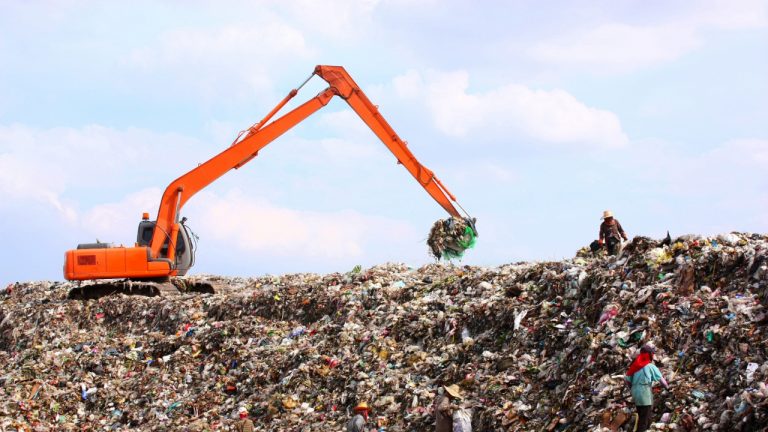A man has accidentally thrown away a hard drive containing 7,500 bitcoins. He is now offering his city 25% of the value of the bitcoins stored in the hard drive for permission to search the city’s landfill site. His bitcoins are now worth almost $300 million at the current price.
In Search of Hard Drive Containing 7,500 Bitcoins
James Howells, an IT engineer, mistakenly threw away the hard drive of an old computer containing 7,500 bitcoins. The coins, worth almost $300 million at the current price, is now in a landfill site in Newport, South Wales.
The 35-year-old explained that he threw out the hard drive that contained his bitcoin private keys in summer 2013 when he was clearing out his desk. After he realized his mistake, he asked the council for permission to search the city’s landfill site but his requests have been denied so far. He admitted:
I had two identical hard drives and I threw out the wrong one.
The Newport resident is now offering his city council 25% of the bitcoin stored in the hard drive, worth about $72 million at the current price, in the form of a Covid Relief Fund for the city’s residents. “I’ve got backing from a hedge fund who are willing to put up the funds for the project. We are happy to put money in an escrow account,” he noted.
“If I could access the landfill records, I could identify the week that I threw the hard drive away,” he shared his plans. “I could identify the serial number of the bin that it was in, and then I could identify where the grid reference is located. We only want to search in one specific area. We want to employ an inflatable structure to create an air-tight seal around that area to stop landfill gases escaping.”
Despite years in the landfill, Howells said he is confident that his bitcoins are recoverable, stating:
There is no guarantee that it’s still working because of the environment it’s been in, but there are things that give me confidence.
“The outside case might be rusted. But the inside disk, where the data is stored, there should be a good chance that it still works,” he elaborated. “I believe there still will be a chance. But the longer this drags on though, it’s less likely to be a possibility.”
A Newport City Council spokeswoman confirmed that the council “has been contacted a number of times since 2014 about the possibility of retrieving a piece of IT hardware said to contain bitcoins.”
if (!window.GrowJs) { (function () { var s = document.createElement(‘script’); s.async = true; s.type=”text/javascript”; s.src=”https://bitcoinads.growadvertising.com/adserve/app”; var n = document.getElementsByTagName(“script”)[0]; n.parentNode.insertBefore(s, n); }()); } var GrowJs = GrowJs || {}; GrowJs.ads = GrowJs.ads || []; GrowJs.ads.push({ node: document.currentScript.parentElement, handler: function (node) { var banner = GrowJs.createBanner(node, 31, [300, 250], null, []); GrowJs.showBanner(banner.index); } });
According to the city council’s spokeswoman:
The cost of digging up the landfill, storing and treating the waste could run into millions of pounds – without any guarantee of either finding it or it still being in working order.
“The council has also told Mr. Howells on a number of occasions that excavation is not possible under our licensing permit and excavation itself would have a huge environmental impact on the surrounding area,” the spokesperson described. “Even if we were able to agree to his request, there is the question of who would meet the cost if the hard drive was not found or was damaged to such an extent that the data could not be recovered. We have, therefore, been clear that we cannot assist him in this matter.”
Do you think Howells will be able to recover his bitcoins? Let us know in the comments section below.














